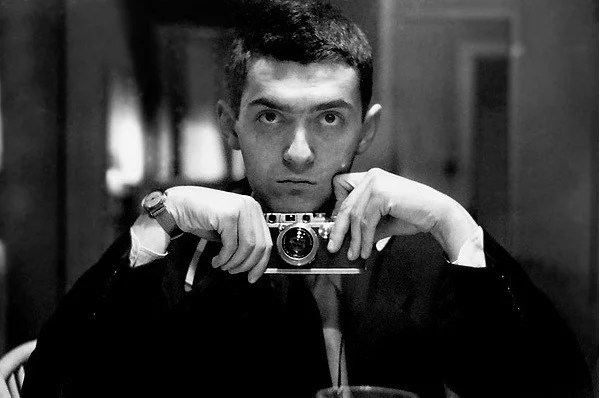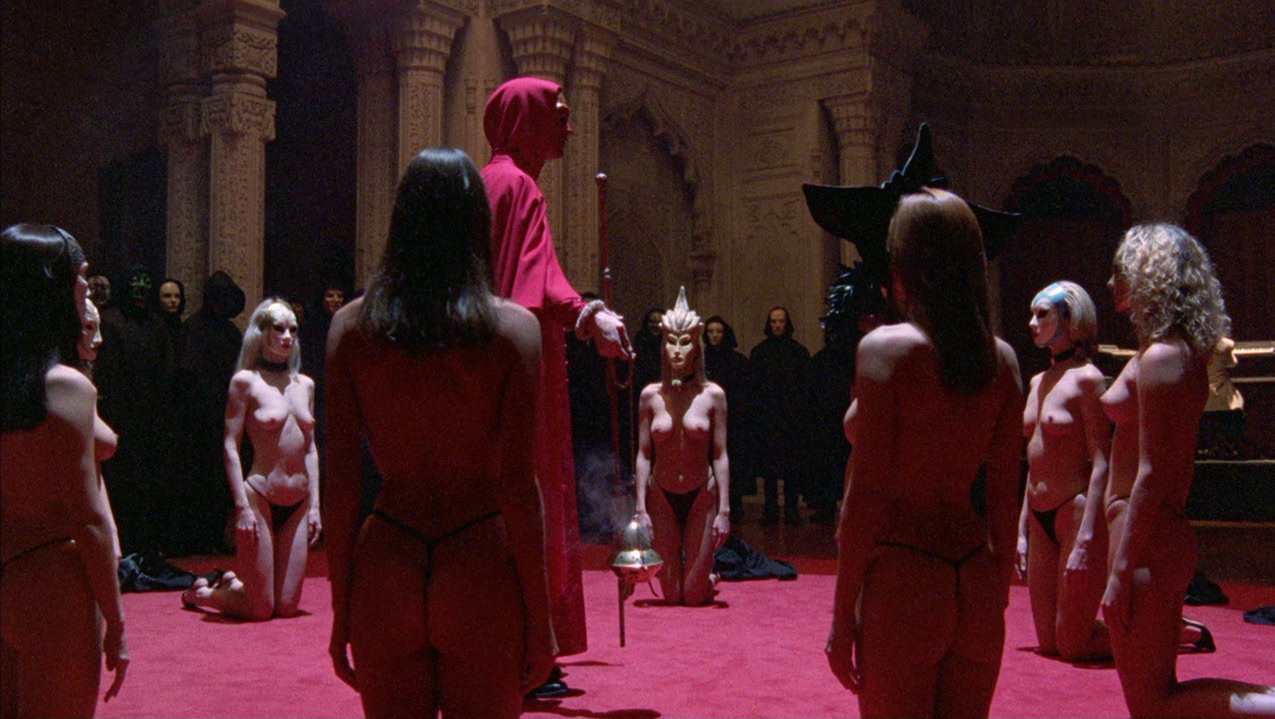Five Reasons Why Stanley Kubrick is the Greatest Director of All Time
Stanley Kubrick, an unmovable pillar in the halls of cinematographic history retains the Midas standard of creative control in both American and British film history. He is both admonished and revered by critics and fans alike for his myopic dedication to his craft, often singularly filling the roles of : film director, screenwriter, producer, cinematographer, editor, and photographer in his works.
A completely immersive sensory phenomenon was Kubrick’s brass ring, the motivation behind his compulsory obsession with complete control over the staging, lighting, direction, acting, and post-production editing of his works.
Kubrick, age 21
For this reason, settling down to watch a Kubrick film is not the same as streaming whatever Netflix show is trending and cherry-picking quotes/hashtags to boost your follower count- there is no room for split attention.
Kubrick slinks out of your screen, his dialogue catching in your throat, the metaphoric imagery and visual leitmotifs of his work scratching behind your eyelids leaving you with the impression of “what did I just see? And more importantly, what did I miss?” long after the final scene fades to black.
In combining the visual, dramatic, and emotional components of a film while wrapping them in multi-level metaphor and staggering irony, Kubrick approached cinematographic expression as an immersive whole, not as a clunking machine of mismatched cogs.
Always the auteur and never simply the man behind the camera, Kubrick fled the pressures of Hollywood producers, and the production-company-complex that equated money with creative control. The bigger the honeypot, the more hands fighting at the rim- and Kubrick was never one to share.
Regardless of his grueling filming schedules, his reclusiveness, obsession with perfection, preoccupation with control and harsh treatment of actors (Shelley Duvall’s nervous breakdown, anyone?) Kubrick is widely referred to as the greatest director of all time.
Still not convinced? Here are five reasons while Kubrick’s eye behind the lens will never be matched:
1. Retained Unadulterated Artistic Control
Eyes Wide Shut
In an industry where talent, position, and credit are often sold, or at the very least swayed, Kubrick remained steadfast in his dedication to his work. He respected the process of creation and isolated himself from the Hollywood machine itself, with all of his films post-1962 retaining his complete artistic vision.
2. Did We Really Land On the Moon? (Cue Twilight Zone Intro Music)
Kubrick’s attention to detail was so respected, that many conspiracy theorists believe he aided the U.S. government in faking the moon landing in 1969. Kubrick’s daughter Vivian took to twitter to debunk these claims in:
“There are many, very real conspiracies that have happened throughout our history but claims that the moon landings were faked and filmed by my father? I just can’t understand it!!? I actually knew him! I lived and worked with him so forgive my harshness when I state categorically: the so-called 'truth' these malicious cranks persist in forwarding... is manifestly A GROTESQUE LIE."
3. Not a Man of Repetition
A Clockwork Orange
Throughout his decades-long career, Kubrick may have only directed a dozen films, but each one was an entity in their own right. The famed cinematographer was not a fan of sequels or titular re-makes, viewing even thematic repetition as a cop-out.
4. Dedication to Futurism
A Space Odyssey
Regarded by many as Kubrick’s greatest triumph, 2001: A Space Odyssey was filmed at a time when the United States was racing to a put a man on the moon, a feat which jeopardized Kubrick’s “futuristic” imaginings. If the U.S. were to succeed and the emerging technology responsible for carrying human life into space was publicized, what would happen if it dwarfed Kubrick’s version of space travel (set far into the future)?
This fear prompted Kubrick’s team to conduct exhaustive research into the paced trends of technology, eerily foreshadowing the devices we can’t imagine modern life without. Smartphone? Laptop? The mechanics/hardware components of those two devices that you’re most likely reading this article on were dreamed up by Kubrick and splashed on the big screen.
“The executive briefcase with its phone handset and dial? Look closely, and all the elements of the laptop or smartphone are there, half a century ahead of time.”
-Space Historian Piers Bizony
5. Longevity
Despite his passing in 1999, Kubrick’s work and visionary aestheticism continues to serve as a shining example of art in cinema.
Film historian Michel Ciment ranks Kubrick to be "among the most important contributions to world cinema in the twentieth century,” a claim solidified by Martin Scorsese, Steven Spielberg, Wes Anderson, James Cameron, George Lucas, Woody Allen, Ridley Scott, and the Coen brothers all praising him a source of inspiration.
When questioned on Kubrick’s influence in his work, Paul Thomas Anderson stated, “"it's so hard to do anything that doesn't owe some kind of debt to what Stanley Kubrick did with music in movies. Inevitably, you're going to end up doing something that he's probably already done before. It can all seem like we're falling behind whatever he came up with."
Turn off the lights, put your cell phone on vibrate, and don’t just watch-
let a Kubrick film surround you.








